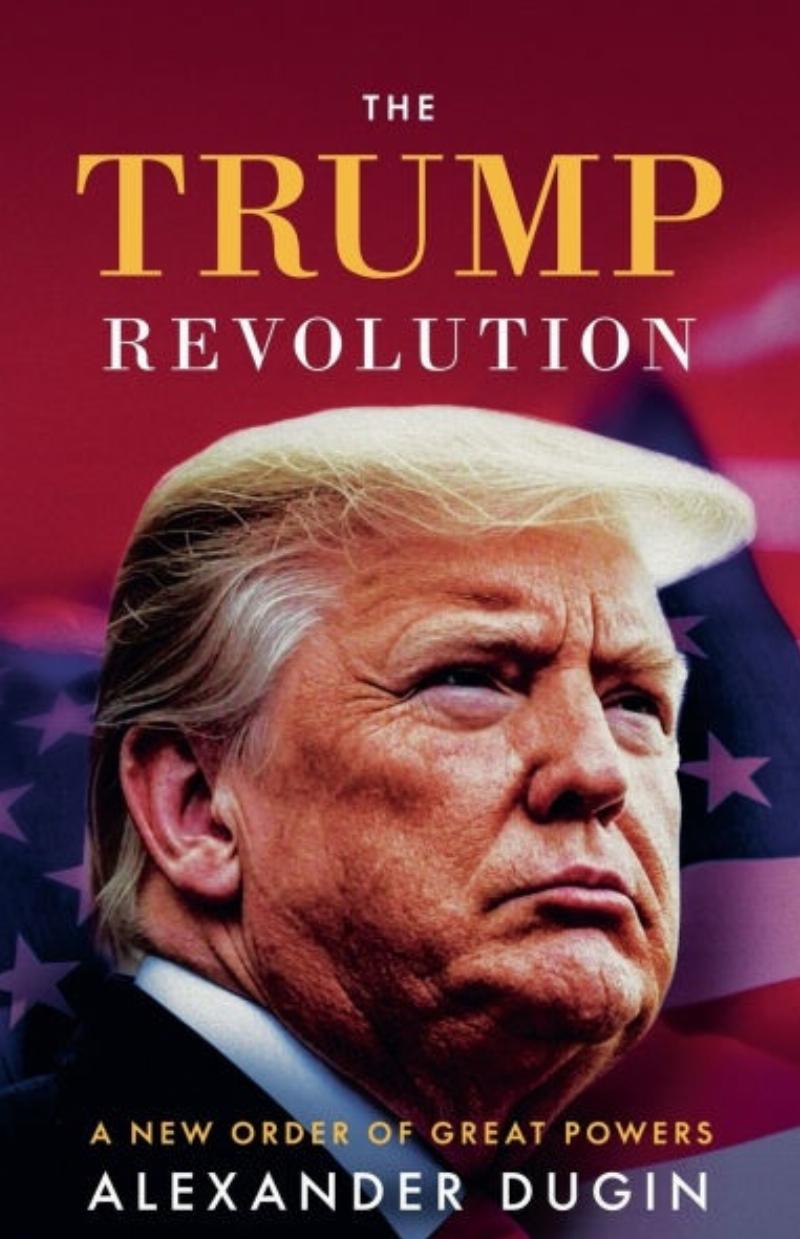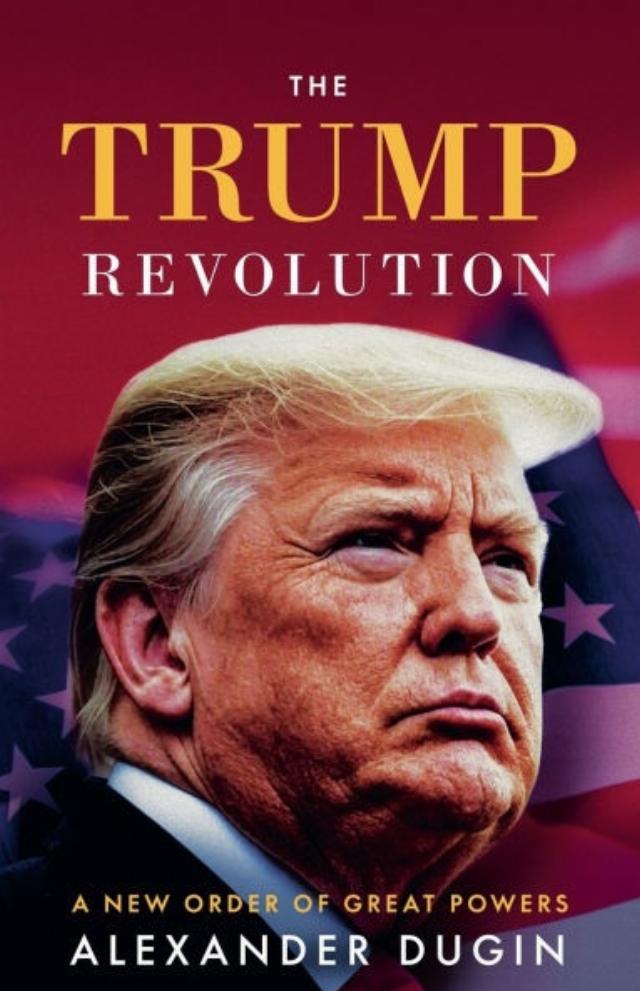


Sometimes, an unlikely book can provide surprising insights about what is happening in the world. One such book is The Trump Revolution: A New Order of Great Powers by Alexander Dugin. The short 114-page work explains current events from a Russian perspective.
The surprise involves its eccentric Russian author. Alexander Dugin is a strange figure. He is called Russian President Vladimir Putin’s brain, ideologue, and other such titles. However, the Russian leader uses him as he sees fit. He has no official function in the Russian government. He is a kind of Steven Bannon figure influencing from the shadows.
Thus, nothing in the book is certain. One cannot claim that this book is the official program for either Putin or President Trump, but one also cannot say it isn’t.
It is an intriguing read that explains what this Russian nationalist and some elements in the West are thinking. Even better, it is clearly laid out. This is surprising, as Dugin’s writing is usually frustrating to read because it constantly refers to esoteric ideas and philosophers like Martin Heidegger. However, this short work mentioned in the Wall Street Journal is a collection of articles and interviews that presents a clear political perspective without the philosophical baggage.
A Coming Revolution
Dugin thinks big. He believes in a coming revolution that will change the geopolitical configuration of the postmodern post-war world based on American hegemony.
He sees parallel positions in the Trump Administration and the Putin regime. Both want to change the globalist world order, but they propose different ways of doing so.
According to Dugin, the world must transition to a multipolar order made up of “civilization states.” These super-states with strong identities and values will attract constellations of nations and states that “share a common civilizational paradigm.”
The West as Target
For this reconfiguration to happen, America and the West must be taken from their privileged position as the principal and dominant pole of world power. The era of western hegemony must come to an end. Each pole in this new multipolar world must develop as it sees fit.
Thus, Dugin calls upon the non-western world to “oppose the West in its cultural values, economic mechanisms, technological solutions, political institutions and protocols, information systems, aesthetic preferences, and ethical criteria.”
The break must be radical and far-reaching. The West might continue to exist but diminished, and it must not impose its values upon other nations in the manner of a leader and follower, a master and slave.
This Dugin vision calls for a civilizational class struggle against the oppressive West. However, it is best if the West (via nationalist leaders) can contribute to its own dethronement.
Decoupling
The means for this break to happen is what Dugin calls “decoupling.” All nations must be decoupled.
 Decoupling calls for breaking off all western ties in all fields. Dugin writes, “Decoupling does not simply mean deteriorating or severing relations; it goes much deeper. It entails a reassessment of fundamental civilizational frameworks that had long positioned the West as a model.”
Decoupling calls for breaking off all western ties in all fields. Dugin writes, “Decoupling does not simply mean deteriorating or severing relations; it goes much deeper. It entails a reassessment of fundamental civilizational frameworks that had long positioned the West as a model.”
In this sense, Dugin believes that the West has done Russia a favor by imposing severe sanctions because of the Ukraine war since it forces Russia to “decouple” and return to “full geopolitical sovereignty.” Likewise, one might say that President Trump’s imposition of universal tariffs has a decoupling effect of weakening and dismantling the commercial links that keep the globalist order together. They have filled the global markets with uncertainty, distancing friendly nations from America.
Even western nations must decouple from other western states by withdrawing into their borders. Thus, this nationalist attitude would free all nations to engage in the fight against immigration flows, the erosion of identity, and de-sovereignization.
Rejection of the Woke World
Another component of the Dugin multipolar order, also reflected in the Trump Administration, is a rejection of radical liberalism as expressed in wokeness, transgenderism, posthumanism and eco-alarmism.
This position is very attractive to a public that is fed up with woke attacks on society and common sense. Indeed, western conservatives have long opposed these efforts. These radical liberal programs are in retreat worldwide.
In its place, the Dugin plan calls for adopting “traditional values,” which include vague notions of religion, sports, family, morality and other values that mark each respective civilizational state, be it Communist Chinese, Islamic, Hindu, or Christian.
This attitude explains Trump’s “America First” policy and Putin’s “Russia First” position. Each pole, with its traditional values, has no other mission beyond promoting its own zone of prosperity and development.
Inside this “illiberal” framework, there is no notion of internationalism with its rhetoric about “universal human values or rights.” Everything is nationalist, and influence is limited to a nation’s respective zone.
Resistance Inside Russia
Perhaps the most interesting part of the Dugin book/blueprint is the admission that not everything is going well in his imagined new multipolar order. Surprisingly, the Russian population is reluctant to adopt it. Dugin says America is much more on board than Russia.
Thus, Dugin complains that even though Russia started following this plan earlier, “President Trump is much more successful.”
He writes, “We have now entered an era of interaction with a rapidly evolving conservative-revolutionary America. The speed of changes occurring in the United States today is a challenge to us.”
Dismantling the Globalist World Order
Dugin makes it clear that the goal of this “new order of great powers” is the dismantling of the present world order. However, he makes the mistake of equating the errors of liberalism with the notion of the West, which was founded on Christian principles. His war on the West is not only upon the liberal values attached to it like a cancer. He wants to eliminate those good structures, frameworks and founding principles that sustain the world.
He introduces an unknown hidden framework that involves his esoteric philosophies. These strange ideas work against the Christian order.
Dugin does not hesitate to classify this change as “a monumental revolution-perhaps even more significant than 1991, or even 1917 in our country [Russia]. ‘This is a complete paradigm shift. Minus turns into plus, black turns into white.’”
An Enigmatic Book
Thus ends Alexander Dugin’s enigmatic book. It presents troubling ideas that are circulating in the post-liberal world and gaining some traction. Some events fit into his theories; others don’t.
His ideas are unique in that they make the seldom-seen connection between Putin, the nationalist right gaining ground worldwide and President Trump. Amid the political and economic chaos seen everywhere, his explanation suggests that this disorder is part of a desired decoupling.
As with many post-liberal authors, there is much merit in Dugin’s criticism of liberalism but no presentation of a valid alternative.
His desire to topple American and western leadership through the establishment of a multipolar world will not lead to a much-needed Christian order but to greater chaos and ruin. In these uncertain times, dangerous works like The Trump Revolution need to be read and taken seriously.
Image: Arktos Media Ltd.
